Care for the blind
Support for people with a sight impairment
We provide home-based care for blind people and those with severe visual impairments.
With over 30 years’ experience in specialist home care, we support adults of all ages by providing them with the right level of assistance at home. Blindness, or severe visual impairment, can affect people of any age. It’s a problem that can make daily life challenging, but it doesn’t mean you or your loved one have to move away from the family home. We believe that with a little extra help from professional and medical experts, as well as your family and friends, people can face any difficulty associated with a visual impairment with confidence.
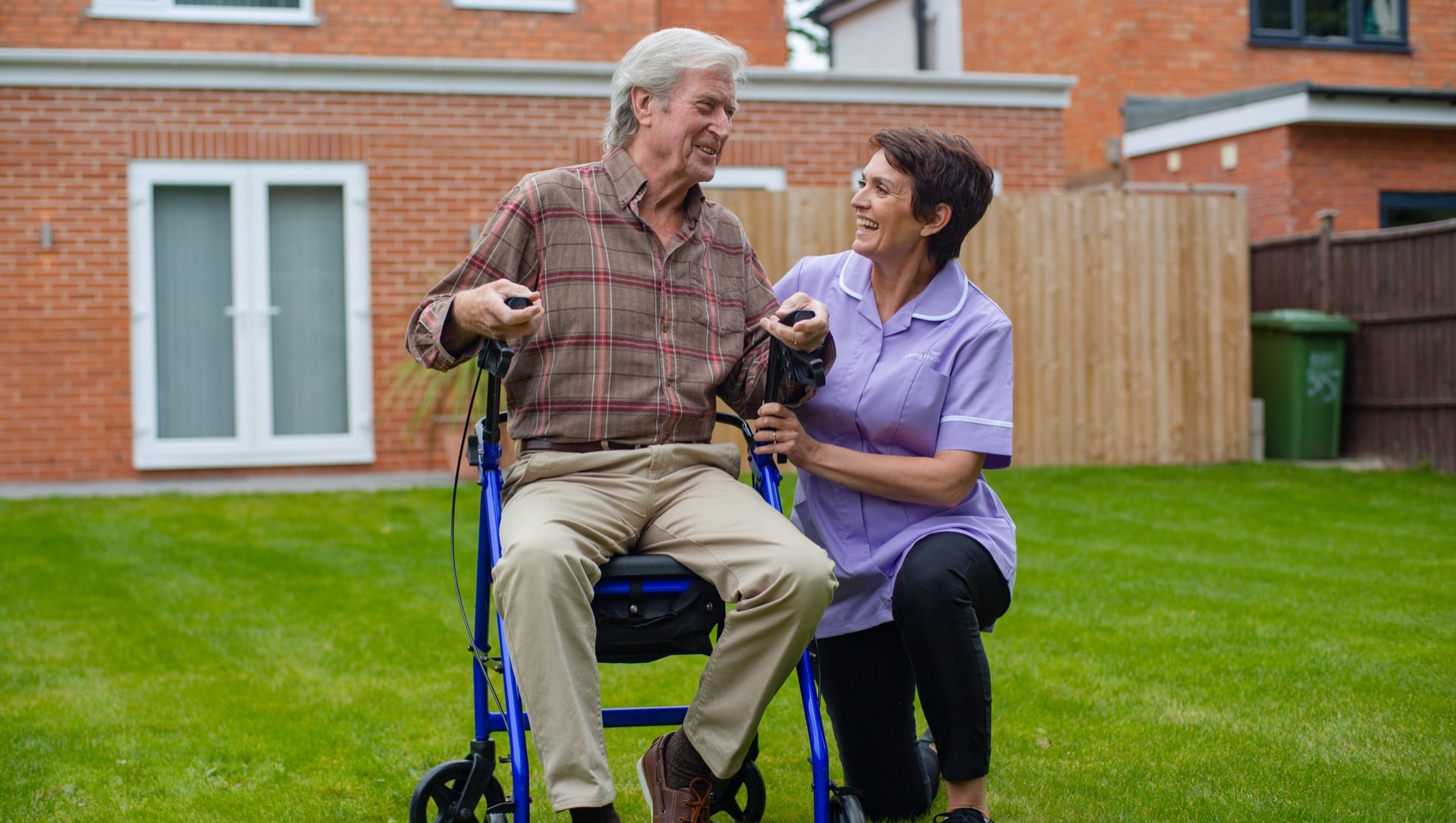
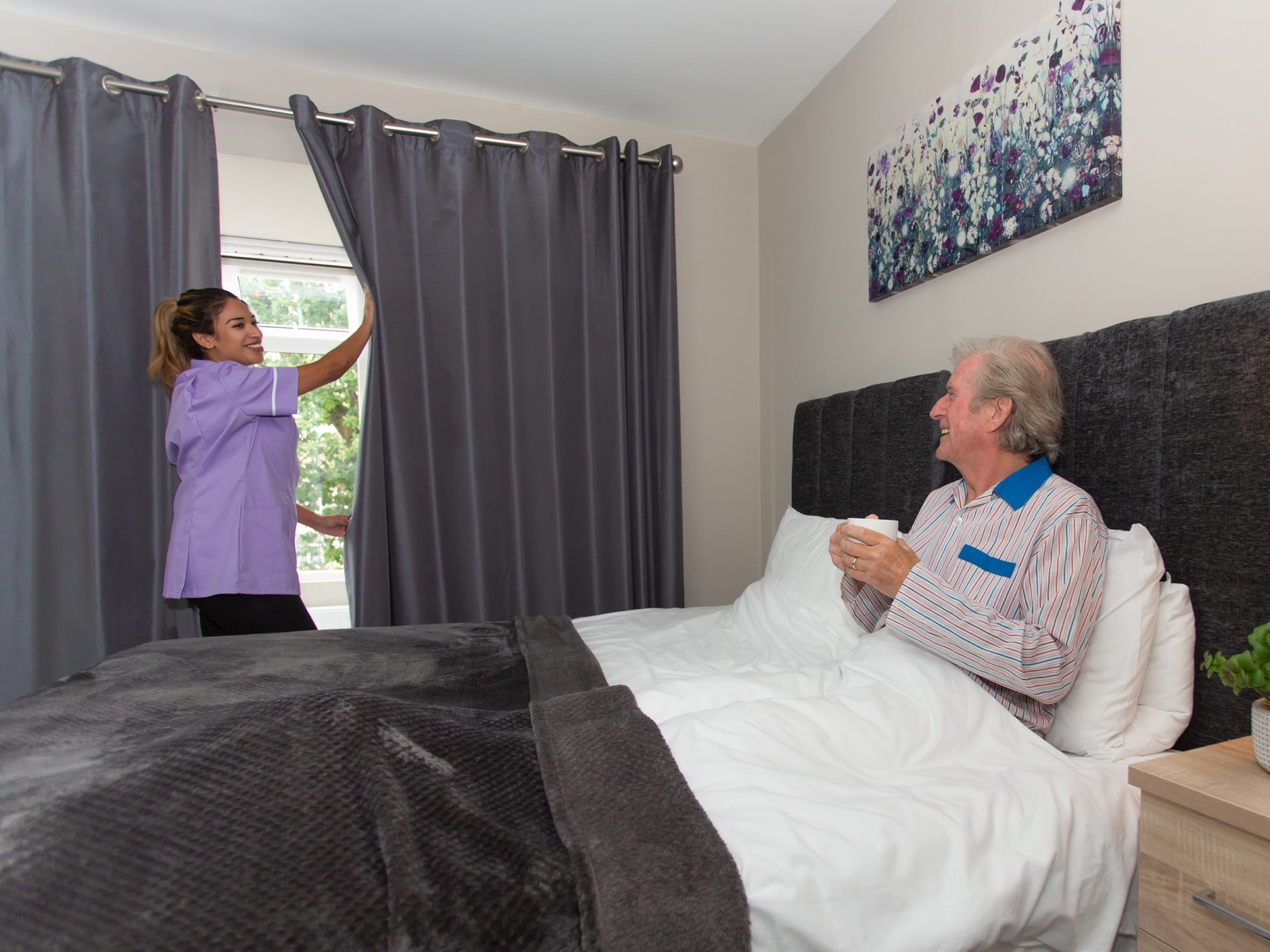
Care that puts your needs at the centre
Our carers can help you to manage your daily routines and enjoy heightened independence.
People are at the centre of our care for the blind. That’s why we tailor our support to fit with your existing lifestyle. Our carers are there to help rather than disrupt what our customers are used to. If you need to adapt your home to help you remain independent, we can support you with this too.
We help to care for the blind through:
Moving safely at home
A carer can help you move safely around your home, and can make any adjustments you need
Medication assistance
All of our carers are fully trained to help you organise and administer your medication
Personal care
Your carer can provide discreet support with bathing, dressing and continence care
Preparing meals
Whether you want your favourite meal or nutritious snacks, a carer can prepare food for you
Household chores
From doing the laundry to doing the vacuuming, your carer can stay on top of the housework
Caring for your dog
Your carer can lovingly help look after your dog, including feeding them and taking them for walks
Running errands
You might benefit from errand support, such as help with your mail or doing the food shop
Valued companionship
From chats over a cup of tea to joining you on day-trips, our carers are great companions
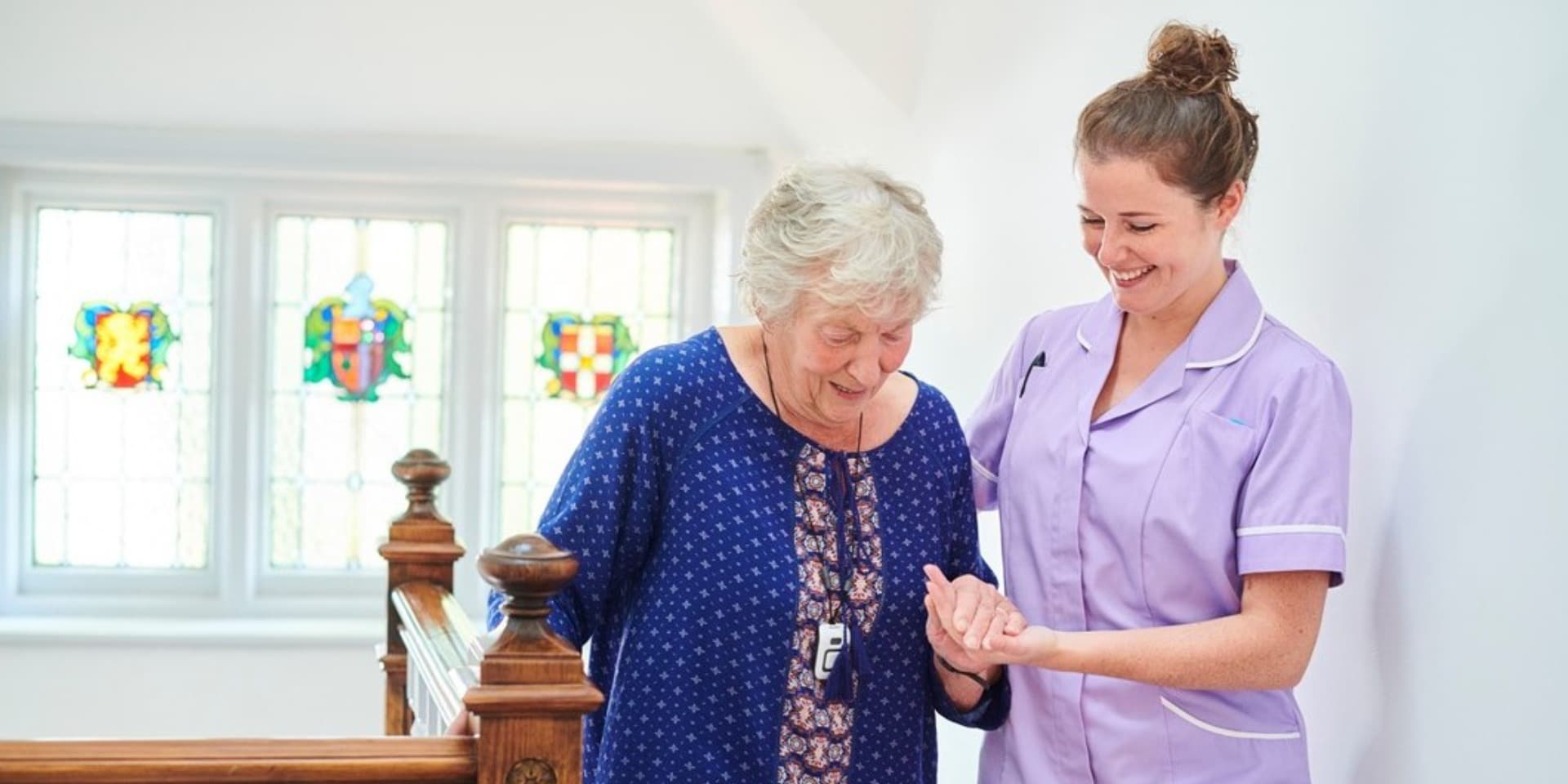
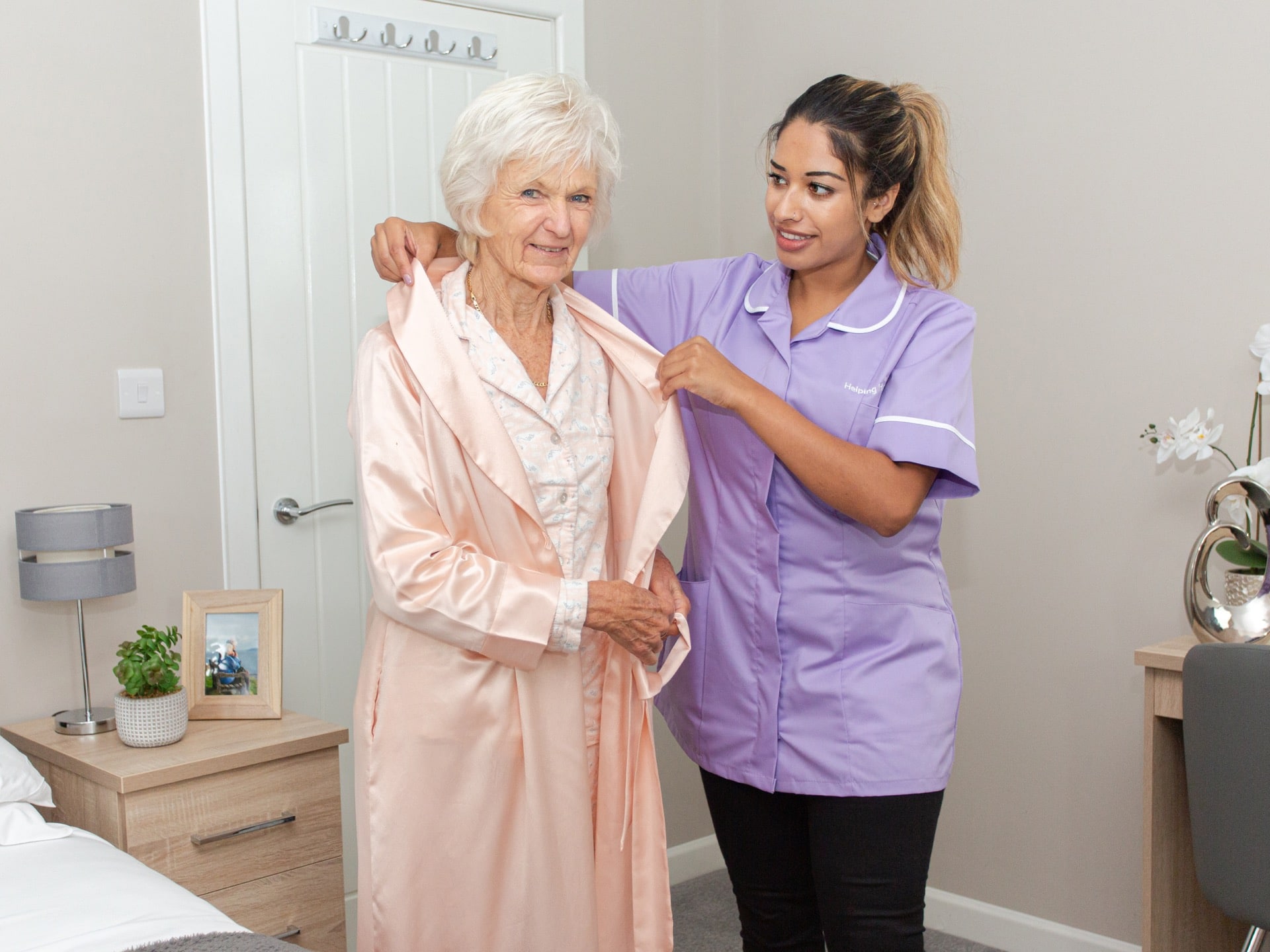
How can Helping Hands help my visual impairment?
Our carers have a wealth of experience in providing live-in care and visiting care for blind people, and they receive ongoing training about caring for specific conditions.
Whatever your visual impairment or medical condition, we’ll match you with a visiting carer or live-in carer who will easily adapt to your needs, supporting you with your condition or with elderly care as well as looking after your personal interests.
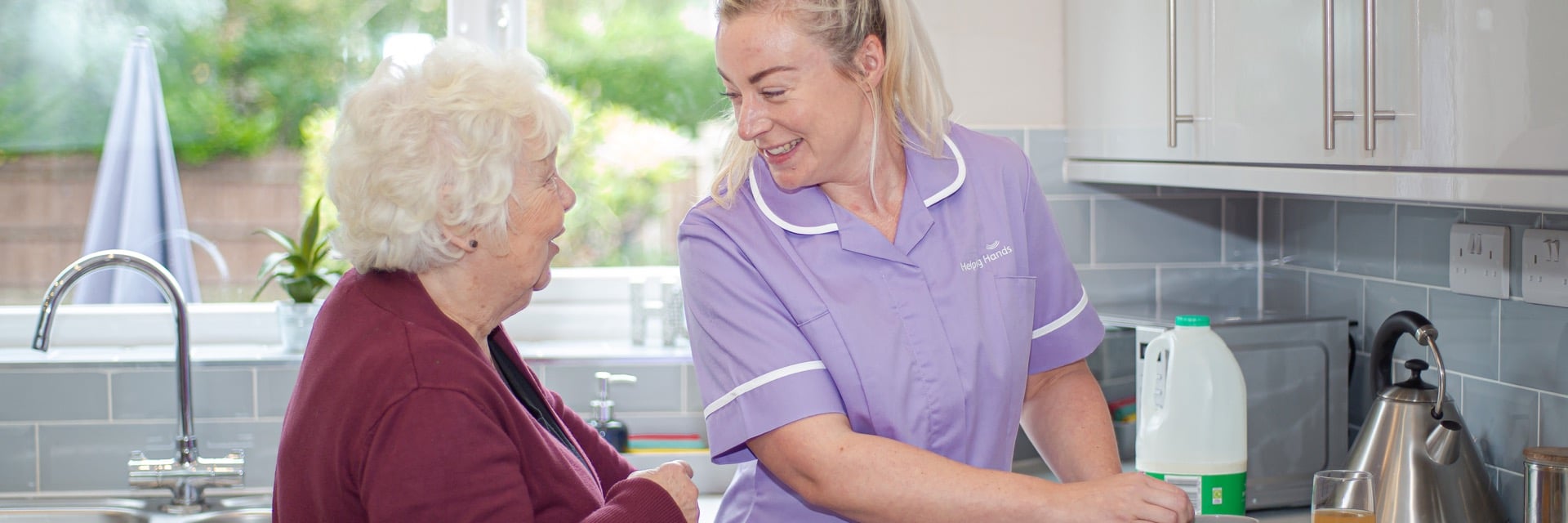
If you’re losing your sight or are affected by partial sight loss, you may find you’re slowly adapting to a new way of life - which we can help with.
Practical support
Emotional support
Help with vision aids
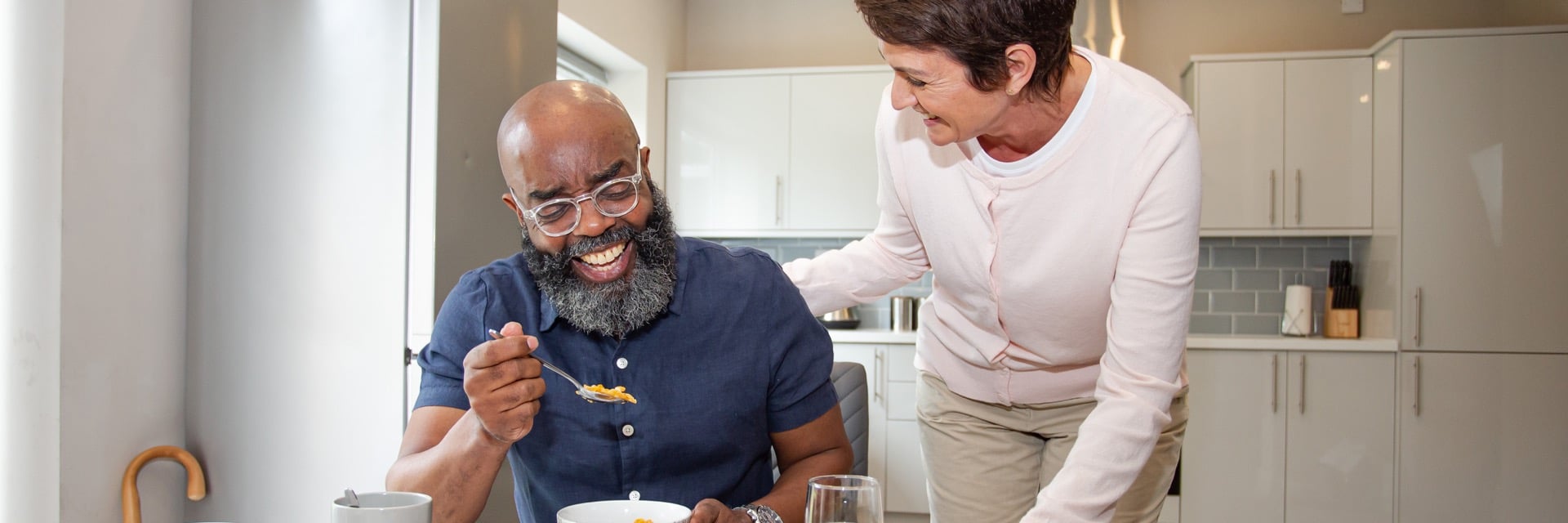
Glaucoma can significantly affect your eyesight and cause problems when it comes to daily tasks, especially when you’re in unfamiliar surroundings.
Support after surgery
Practical assistance
Help getting out
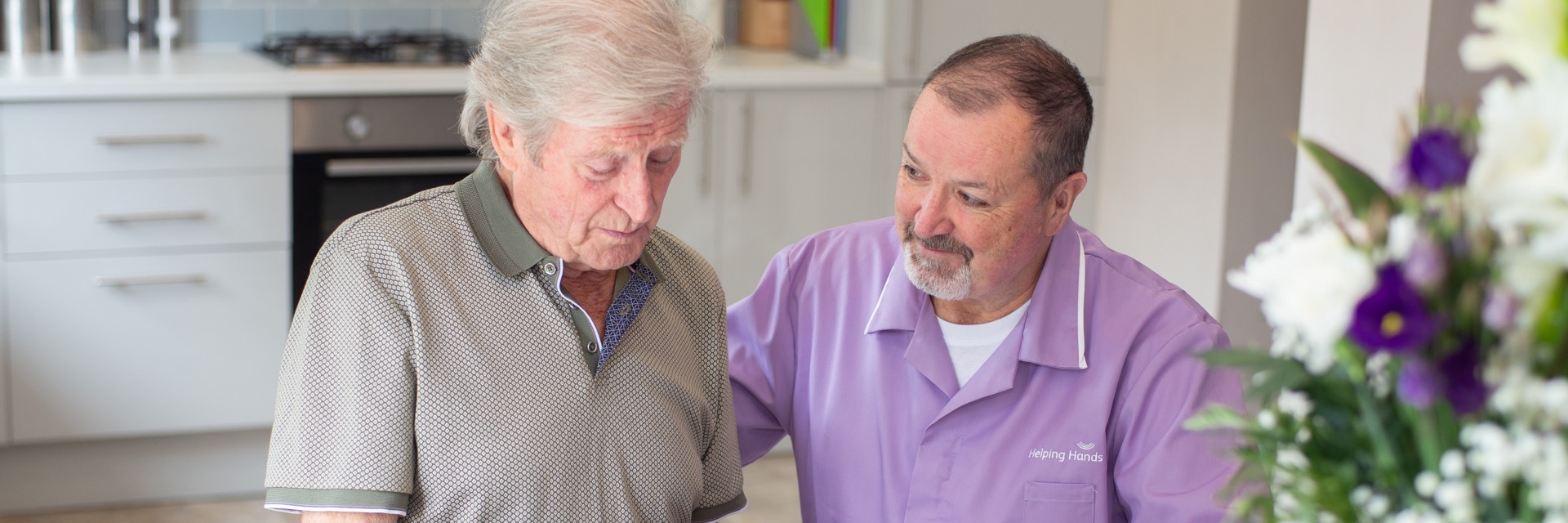
By choosing care in your own home, we can work together to come up with ways of adapting your home in a way that suits you.
Encouraging independence
Someone to listen
Home adaptations
Personal support from the very best carers
Our dedicated and compassionate carers truly are exceptional at what they do.
At Helping Hands, all of our carers have been selectively recruited for their kind, empathetic personalities and their committed approach to their roles. Every carer is fully background checked, and has received our comprehensive carer training.
Our carers will always treat a blind or visually impaired person normally, offering introductions and the same courtesies as any care recipient would receive. They will be mindful of your condition and will work to maintain your independence and lifestyle.

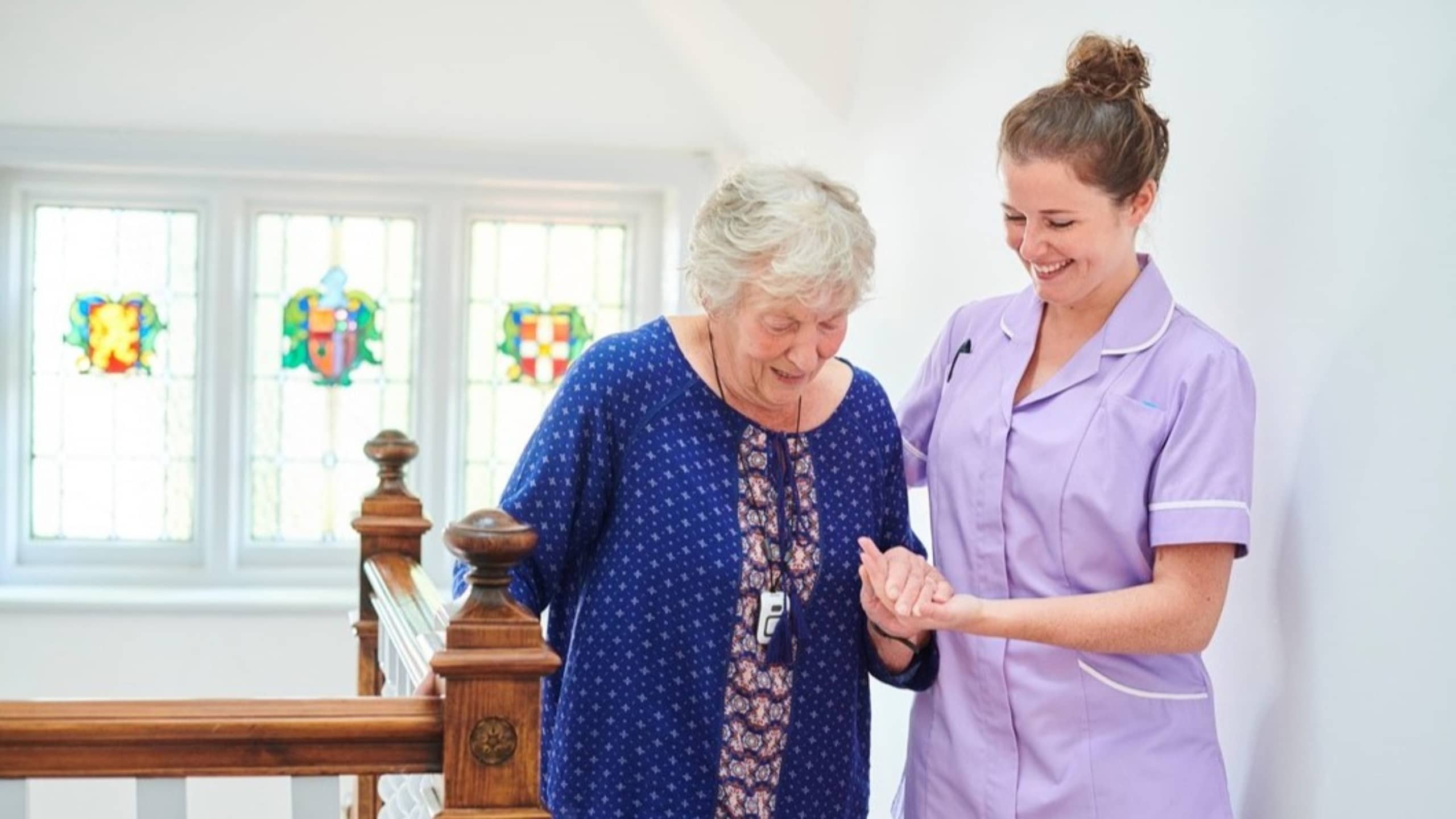
How can I help a family member who is blind?
If you’ve got a family member or friend who is blind, it’s only natural that you’ll want to help them out in any way you can. However, it isn’t always easy to know how to do this in a way that is respectful and genuinely meaningful. Here are some steps you can take to support a loved one who is blind or partially sighted:
Treat them the same
Always treat the blind person the same way you would other individuals in the family
Show care and affection
Remember that blindness is a physical challenge, so ensure you show due care and affection
Speak normally
Always speak in a normal tone. Avoid shouting or yelling in front of them.
Ask if they need assistance
If you are willing to offer assistance, wait till they accept the offer. Make sure that they are aware that you are going to help.
Enhance accessibility
Keep their things in an easily accessible place, and make their home navigable. You can make things accessible with Braille stickers or markers.
Help them get out and about
Walk along with them or plan out an outing with them where they can enjoy, but bear in mind that not every blind person needs a guide
Fully regulated by the CQC / CIW
Here at Helping Hands, our blind care service is fully managed and regulated by the Care Quality Commission (CQC).
From your very first phone call to our friendly team, every aspect of your home care service is independently monitored and regulated by the CQC and Care Inspectorate Wales (CIW).
Why is being a regulated company important?
What does regulation mean?
Our service is regularly monitored, inspected and regulated by an independent body
Why do we choose to be regulated?
We want every customer to have full peace of mind that their care is approved by a regulating body
How does regulation affect my care?
Our regulation means a guarantee that we’ll provide you with high quality care, no matter what
How to arrange care

Speak to our team
Call our team of experts to talk through your options and any questions you may have.
Free home care assessment
Your local Helping Hands manager will visit you to discuss your care requirements.
Find your carer
We’ll help to match you with a carer who meets your preferences and has the right skills.
Care for the blind FAQs
-
How do you care for the blind?
-
Our carers’ main objective is to help our customers to be as independent as possible, rather than disrupt what they’re used to. We provide holistic, person-centred support for blind and partially sighted people that helps them in their day-to-day lives.
-
What services are offered for blind or visually impaired customers?
-
We’re able to offer a variety of flexible, personalised care services to people with varying types and levels of blindness. Our visiting care starts from as little as 30 minutes per week, while we can also provide you with a live-in carer if your needs are more complex.
-
How do I arrange care for the blind?
-
If you’d like to arrange support, either for yourself or a loved one, you can do so by calling our friendly customer care team today. They’re available to talk to seven days a week, and will always be happy to help out with any queries you may have about caring for blind people. Alternatively, you can contact us via our website to arrange a callback at your convenience.
-
Care options for blind elderly with dementia
-
Living with a visual impairment and dementia can bring a number of complications that may necessitate a comprehensive package of care. At Helping Hands, all of our carers are fully trained to provide expert dementia care, elderly care and support for blind people, and will work alongside our dedicated nursing team to ensure all of your loved one’s needs are fully catered for each and every day.
Page reviewed by Kathryn Mahon, Regional Clinical Lead, on July 25, 2024.
How we wrote this page
This page has been produced referencing key insights and data from external experts, trusted medical sources and our team of in-house specialists. We have worked hard to ensure that all information is as accurate as possible and reflects current consensus at the time of writing and reviewing.
